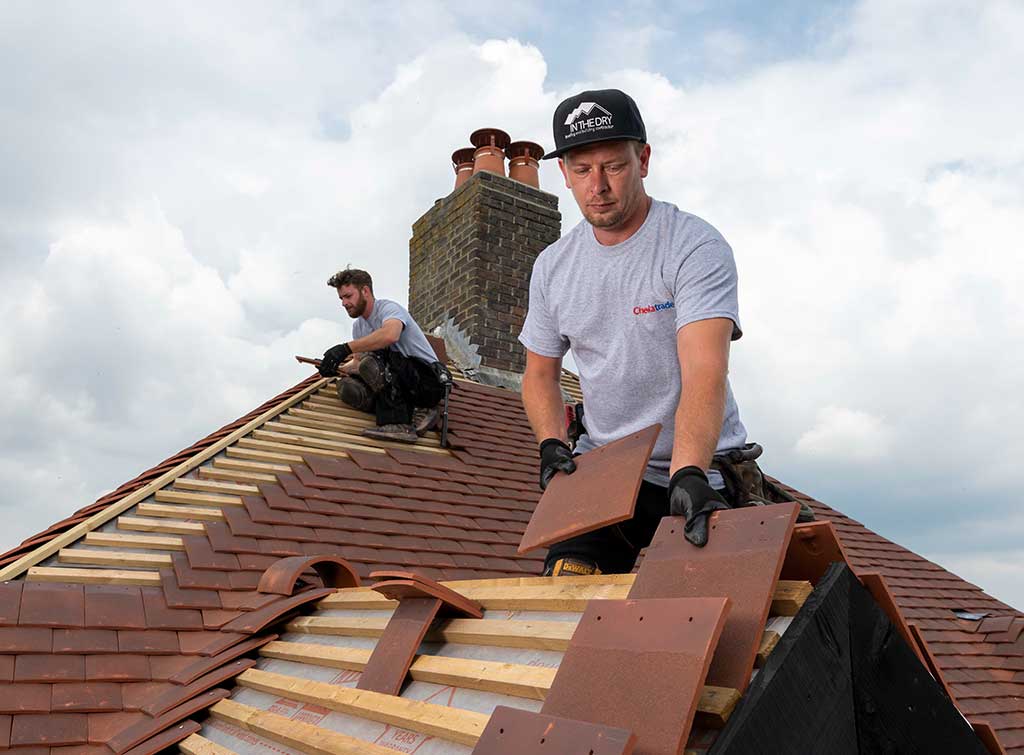Roof Replacement in the UK: What You Need to Know
Roof Replacement in the UK: What You Need to Know
Blog Article
Replacing a roof is a major undertaking for any homeowner in the UK, and it's one that often comes with a significant cost. However, it is also one of the most important home maintenance tasks, as the roof serves as the primary barrier between the elements and the interior of your property. With the UK's unpredictable weather - including heavy rainfall, strong winds, and occasional snow - roofs are exposed to constant stress, making regular upkeep essential. Over time, roofs naturally deteriorate, and repairs may no longer be enough to maintain structural integrity. When leaks become frequent, tiles start to fall, or insulation becomes ineffective, it's usually a sign that a full replacement is needed. Neglecting these signs could lead to expensive damage in the house, such as mould, rot and electrical problems. A new roof not only enhances the appearance of a property but also increases its value and energy efficiency.
Roof replacements are necessary when damage is too severe to repair. Roof deterioration can be caused by age and regular wear, leading to leaks, sagging or the removal of shingles. The most common materials used for roofing in the UK include tiles, slates, and flat roofs, each of which has its own lifespan. For example, traditional clay or concrete tiles can last for around 50 years or more, while asphalt shingles typically last between 20 and 30 years. When these materials begin to fail, replacement is the most cost-effective solution to prevent further damage to the home's structure and interior. Roof replacement is not just about aesthetics; it is crucial for ensuring the safety and protection of your home.
Choosing the right materials is a critical decision in the roof replacement process. In the UK, the most common roofing materials include slate, clay tiles, concrete tiles, and more recently, synthetic alternatives that mimic traditional aesthetics while offering modern benefits. Slate is highly durable and can last well over 100 years, making it a popular choice for heritage homes. Clay tiles also offer long life and natural insulation properties, but they may be more susceptible to damage during freezing conditions. Concrete tiles are cost-effective and widely used in suburban housing. Some homeowners are turning to lightweight metal or synthetic composite tiles for easier installation and energy efficiency. Selecting materials according to the architectural style of the house, the local building codes, and regional climate is essential. A professional roofer can help guide these decisions based on the specific requirements of each property.
Depending on factors such as the type of roof and materials used, its complexity, location, size, etc., the cost can vary greatly. On average, a complete roof replacement on a standard three-bedroom semi-detached house can cost between 5,000 and 12,000. The cost of labour is often a large part of this, while scaffolding and the removal and disposal waste also adds to it. However, this investment is often offset by increased property value and reduced future maintenance costs. It is vital to obtain at least three quotes from reputable contractors and ensure they are members of organisations like the NFRC (National Federation of Roofing Contractors) or TrustMark. Clear contracts, insurance coverage, and written guarantees are also essential to protect homeowners from poor workmanship or unexpected delays. Although the upfront cost may be high, a quality roof replacement offers long-term peace of mind. To obtain additional information kindly go to Roofadvisor
Timing is an important consideration when planning a roof replacement in the UK. Spring or early fall is the best time to undertake such a task, as weather conditions will be more predictable. Project delays and complications can be caused by cold winters or wet summers, particularly if you leave the roof exposed too long. Homeowners should also consider how long the work will take; typically, a full roof replacement takes between one and two weeks, depending on the size and complexity of the property. During this time, scaffolding will be erected, and the property may be noisier than usual. By planning ahead and informing your neighbours, you can smooth out the process. A well-organised roofing team will work efficiently to complete the job while ensuring safety and cleanliness throughout the process.
While roof replacement can be a significant investment, it is essential to view it as an investment in the long-term safety and value of the home. A well-constructed roof protects the home from weather damage, ensures energy efficiency, and enhances the property's curb appeal. The cost of roof replacement in the UK can vary greatly depending on the size of the property, the roofing materials chosen, and the complexity of the installation. On average, homeowners can expect to pay anywhere from PS3,000 to PS7,000 for a new roof. While the initial cost may seem high, it's crucial to consider the long-term benefits of replacing an old, damaged roof. Many contractors also offer financing options, making it easier to spread out the cost of the project.